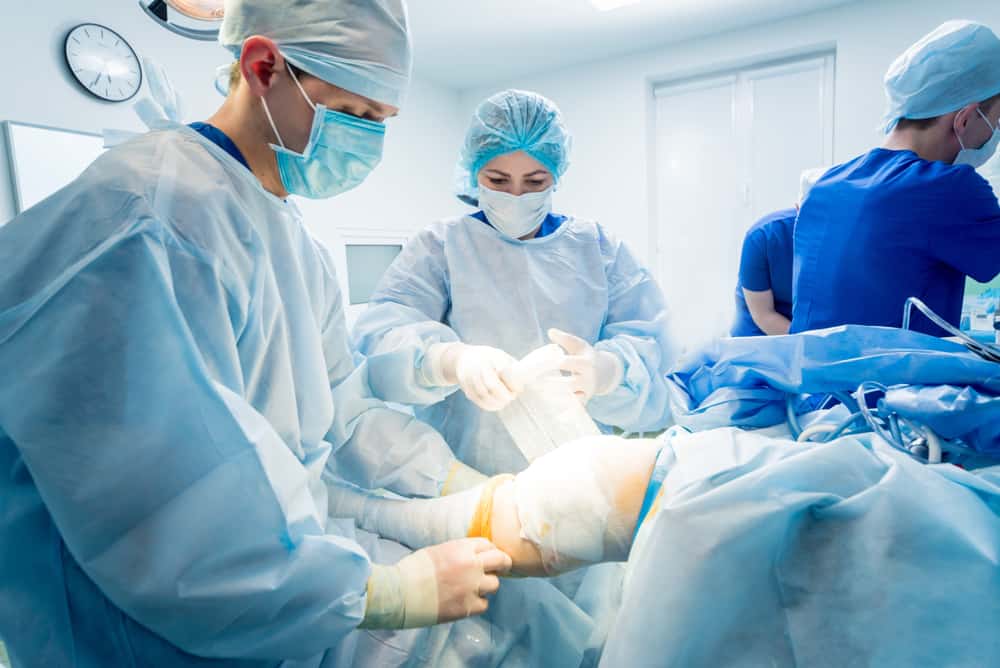How a healthy lifestyle can affect orthopaedic surgery outcomes

Are you a diabetic or obese? Perhaps you are a heavy drinker or smoker? The better the control of your habit and health condition, the better your chances of an excellent surgical outcome. Orthopaedic surgeon Doctor Lorcan McGonagle of LMcG Orthopaedics explains how a healthy lifestyle can improve your risk factors and result in excellent orthopaedic surgical outcomes.
Diabetes and surgical risks
Research has shown that diabetics have a higher chance of surgery-related complications.
The risks people with diabetes face after surgery include:
- Hyperglycaemia (high blood glucose)
- Hypoglycaemia (low blood glucose)
- Poor wound healing
- Infections
- Hyperosmolar Hyperglycaemic nonketotic syndrome (HHNS)
- Diabetic ketoacidosis (DKA)
- Electrolyte imbalance
Obesity and surgical risks
Although obesity is commonly considered a surgical risk factor, the degree of risk has been imprecisely quantified. There is little evidence to suggest that excessive body weight should contraindicate general surgery. However, obesity is often associated with abnormal cardiorespiratory function, metabolic function and hemostasis, which may predispose a patient to morbidity and mortality post-surgery.
Smoking and surgical risk
Smoking is the leading cause of preventable death and illness in Western Australia, causing over 1,500 deaths every year. Two out of three long-term smokers will die early from a disease caused by smoking.In recent years, research has shown that compared to non-smokers, smokers have a higher chance of surgery-related complications such as heart attack, stroke, shock and death. Smoking decreases blood flow making surgical wounds less likely to close, less likely to heal properly and more likely to become infected. Smoking also weakens the immune system, which increases the chance of infection after surgery. In orthopaedic surgery, a smoker’s bones can take longer to heal. Even passive smoke can be a problem when it comes to surgery. For example, children have more complications after surgery if their parents smoke near them.
Alcohol and surgical risk
Surgical complications are more likely if you have an alcohol use disorder. But even one pre-surgery drink can cause trouble.
Risks include:
- Increased bleeding. Alcohol can thin the blood and interfere with the blood-clotting process. The effect is magnified if you also take blood-thinning medications or have a clotting disorder.
- Alcohol interferes with medications.
- Alcohol increases the chances of infection at the surgical site, in the respiratory system, or in the urinary tract.
- Alcohol can cause problems with the liver, pancreas and nervous system, which can slow the recovery process.
- Alcohol use is an independent risk factor for acute confusion or delirium after surgery.
- Cardiopulmonary complications. Alcohol affects the heart and lungs.
Are you undergoing orthopaedic surgery? Here’s how you can improve your risk factors
- If you are a diabetic, keep blood glucose within the parameters your healthcare provider recommends.
- Consuming high-quality protein helps contribute to faster wound healing, stronger tissue at the surgical site and an increased ability to withstand surgery.
- Exercise if you can. A stronger body will assist you during surgery and recovery.
- Try to keep stress to a minimum as it can elevate blood glucose levels and contribute to high blood pressure.
- If you drink, this is the time to stop. Eliminating alcohol will help you better control your blood glucose and minimise bleeding. Western Australia Alcohol and Drug Support Line is a free counselling, information and referral service provided by the WA Government. If you need help with your use of alcohol or other drugs, phone (08) 9442 5000 (Perth) or 1800 198 024 (outside Perth).
- If you smoke, a trained counsellor in Western Australia can help you to plan and develop strategies to quit smoking for good. Quitting smoking before surgery will help you return to breathing without oxygen or a ventilator faster. You can start by calling Quitline on 13 78 48 (13 QUIT). Quitline is a confidential, evidence-based telephone counselling service. The WA Quitline operates Monday to Friday, 8am to 8pm AWST.
Orthopaedic surgery in Western Australia: LMcG Orthopaedics
At LMcG Orthopaedics, Doctor Lorcan McGonagle provides a range of orthopaedic surgeries and treatments. Dr McGonagle’s specialties include knees, shoulder, elbow, wrist and hand, hip, foot and ankle.
If you have a question for Dr McGonagle and his Geraldton team, please get in touch with the clinic today on 08 9921 4847. LMcG Orthopaedics is in Suite 6, St John of God Specialist Centre, 12 Hermitage Street, Geraldton. Click here to make an appointment.
References
